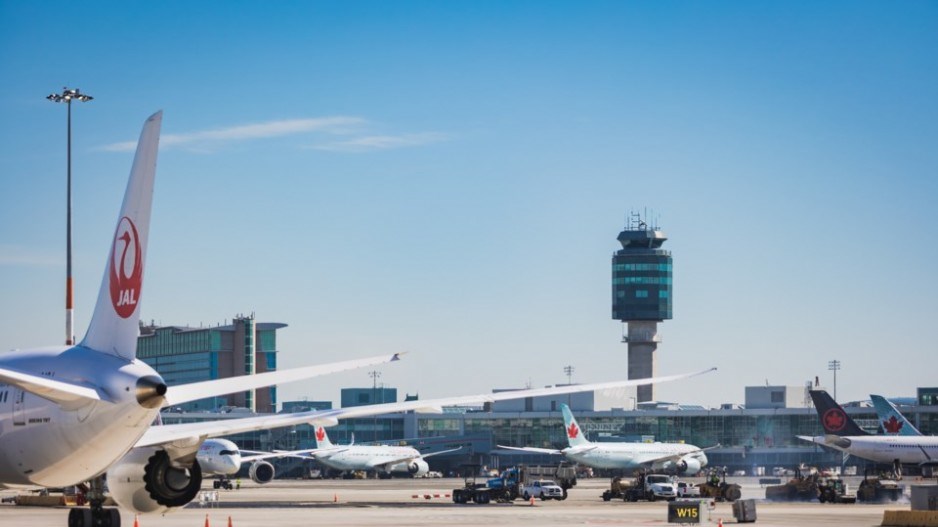The federal government moved this week to bolster accountability at airports, introducing new legislation that would compel them and other operators to cough up more information on their performance.
Tabled in the House of Commons on Tuesday, the bill paves the way for new rules requiring airports and an array of industry players to create service standards and publish data that can be compared against those benchmarks.
The standards could track outcomes ranging from security screening wait times to how long it takes luggage to reach the carousel. They would apply to parties including Canada's air transport security agency, airlines, navigation service and baggage handling firms.
"As we've seen over the last few years, a disruption in one part of the system can have wide effects across the entire network," Transport Minister Omar Alghabra said at a news conference in Ottawa.
"The idea is that once you set a service standard, then airports will be accountable to airlines, airlines will be accountable to airports, Nav Canada will be accountable to airports," Alghabra said, adding that "there are consequences" for those that fail to meet the bar.
However, it is not clear from the bill whether violations of the service standards would be penalized.
“There’s lots of stuff about data sharing but not much about what or who would be taking action and in what conditions would action be taken," said John Gradek, a lecturer at McGill University's aviation management program.
"There may be penalties, but even those powers are left to the government to create," said Air Passenger Rights president Gabor Lukacs.
Arriving just before the House rises for the summer — all but assuring it won't pass until fall at the earliest — the legislation also comes as airline activity ramps up for the summer after a year of airport chaos and flight delays during busy travel seasons.
Last month, the National Airlines Council released a report calling on Ottawa to implement “shared accountability” in aviation, with the goal of smoother travel — and across-the-board responsibility for flight disruptions.
The proposals landed precisely three weeks after the House tabled legislation to overhaul passenger rights. Post-pandemic travel turmoil last summer and over the winter holidays prompted the Liberal government to lay out sweeping changes to Canada's passenger rights charter in an effort to tighten compensation loopholes and toughen penalties.
The airline council recommendations include strikingly similar language to that of Tuesday’s legislation. Both call for “service standards” for operators in the sector, which range from airports to Nav Canada and the Canada Border Services Agency.
“They may have internal key performance indicators ... but there's no accountability for them. There's certainly no public reporting on them,” council CEO Jeff Morrison said in a phone interview on May 11.
Alghabra insisted the summer is shaping up to be smoother than a year ago.
"I've been in regular contact with airports with airlines and other stakeholders on making sure that many of the systemic failures that took place last summer are not repeated. I feel that the system is much more prepared. However, I am keeping an eye on their performance," he told reporters.
Travel hiccups still remain, however. At Toronto's Pearson airport, roughly half of Air Canada flights were delayed or cancelled Thursday through Sunday, according to tracking firm FlightAware. Comparable numbers emerged from Montreal's Trudeau airport.
"As with any system, when it is operating at full capacity it may slow processes down and take longer to recover when issues arise – for example, when thunderstorms halt our operation, as we saw over the recent weekend in the U.S. northeast," Air Canada spokesman Peter Fitzpatrick said in an email.
The airline said its staff headcount is higher than in the summer of 2019, despite currently operating at 90 per cent of pre-pandemic levels.
Pearson has begun to charge fines on baggage handling outfits that spark delays. In place since April, the policy penalizes contractors that fail to furnish crews when planes arrive or gear up for departure, among other criteria.
The Montreal airport authority also fines or terminates licences for ground handling companies that fall short of requirements, spokesman Eric Forest said in an email, adding that new surveillance officers have been deployed to ensure compliance.
Known as Bill C-52, the legislation sketches out a plan to consult the public on airspace changes affecting noise near airports, to require larger airport authorities to report on pollution reduction plans and to compel service providers to submit accessibility data to the government. It also authorizes a process to deal with accessibility complaints from persons living with a disability.
The bill further aims to enhance transparency on how a port sets its fees by mandating port authorities “to follow certain principles when establishing or changing” them. It also spells out a process to challenge newly set fees via the country’s transport regulator.
This report by The Canadian Press was first published June 20, 2023.
Christopher Reynolds, The Canadian Press




